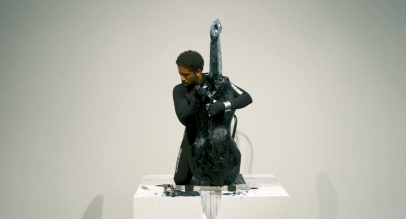
This week’s Seattle Symphony program culminates in one of music director Ludovic Morlot’s specialities: La mer, the finale to a program initially designed around orchestral color.
It opens with Escales (“Ports of Call”) by Debussy’s younger compatriot Jacques Ibert. This tripart travelogue from the early 1920s unabashedly exploits clichéd Orientalist and Spanish tropes, but the composer’s treatment of the orchestra is fresh, and Morlot found enough appealing nuances here to make it an enjoyable outing — and to pique interest in hearing more of this now-neglected composer’s considerable output.
The program had originally been slated to include a real rarity — Scriabin’s Piano Concerto, an early work that isn’t exactly in most pianist’s ready-to-go rep. Daniil Trifonov withdrew because of illness at the last minute, so it wouldn’t have been reasonable to expect Inon Barnatan to play the Scriabin when he agreed to save the day.
Scriabin’s synesthesia was meant to be a linking thread here — and perhaps something about Debussy’s Russian influences? — but the substitute turned out to be quite satisfying anyway: Mozart’s K. 488 Piano Concerto, which dates from just before the Figaro premiere.
I was impressed by Barnatan’s SSO debut two years ago (in Beethoven’s Third Piano Concerto). Once again, there was much to admire in his ultra-refined approach to the Mozart, which I heard on Thursday night — all the more striking, given that the concerto’s seemingly straightforward textures were surrounded by the complex hues and ravaging color fields of the rest of the program.
But I was puzzled by the shift from Classical poise to Romantic exaggeration of gesture in the minor-key slow movement, which contains some of Mozart’s most heart-rending music. Barnatan is such a naturally expressive interpreter that I think he would have been more effective without adding italics. Still, there were moments of that elevated beauty squeezed from the most commonplace phrase that set Mozart apart. The finale had all the joie de vivre of the Figaro that was waiting in the wings.
Morlot combined Respighi’s Pines of Rome with Debussy (Nocturnes) early in his tenure, and this time he took up the Italian’s Fountains. It’s hard to avoid the charge of musical padding here in Respighi’s opulent, neo-Richard Straussian scoring, but Morlot shaped the vignettes into miniature dramas that held interest. The SSO’s playing was at a high level, with especially fine ensemble from the strings.
It all seemed to set the stage perfectly for Debussy’s quasi-symphony La mer — including the times-of-day conceit of Respighi’s homage to Rome, moving from the sun’s fading at the Villa Medici to Debussy’s oceanic dawn.
But it soon became clear that Morlot wasn’t interested in “painting” with tone colors or the kind of pictorialism of Ibert — in other words, that he wasn’t treating La mer as another piece of program music that proves how clever Debussy was at conjuring mental images of aspects of the sea through his orchestration. In fact, and especially in contrast to the Ibert, it became obvious how much Debussy manages to do without resorting to standard musical tropes to suggest water.
Instead, the “colors” here seemed closer to the way we find them used in a Mahler symphony: expressions of an internal cosmos, building into a wordless drama of struggle and affirmation.
In his latest take on the piece, Morlot often went in surprising directions. Most remarkable of all was the intensity of the drama in the third panel, which exuded an almost terrifying ferocity I’d not heard in live performances of La mer.
The synergy with the SSO was exciting. Mary Lynch’s rendition of the ambiguous oboe phrase crowned an evening of stellar playing by the woodwinds. Morlot has internalized Debussy’s score to such a degree that he occasionally created the illusion of writing it on the spot. A moving tribute to Debussy’s continuing relevance.
–Review (c)2018 Thomas May. All rights reserved.
Filed under: Debussy, Ludovic Morlot, review, Seattle Symphony






